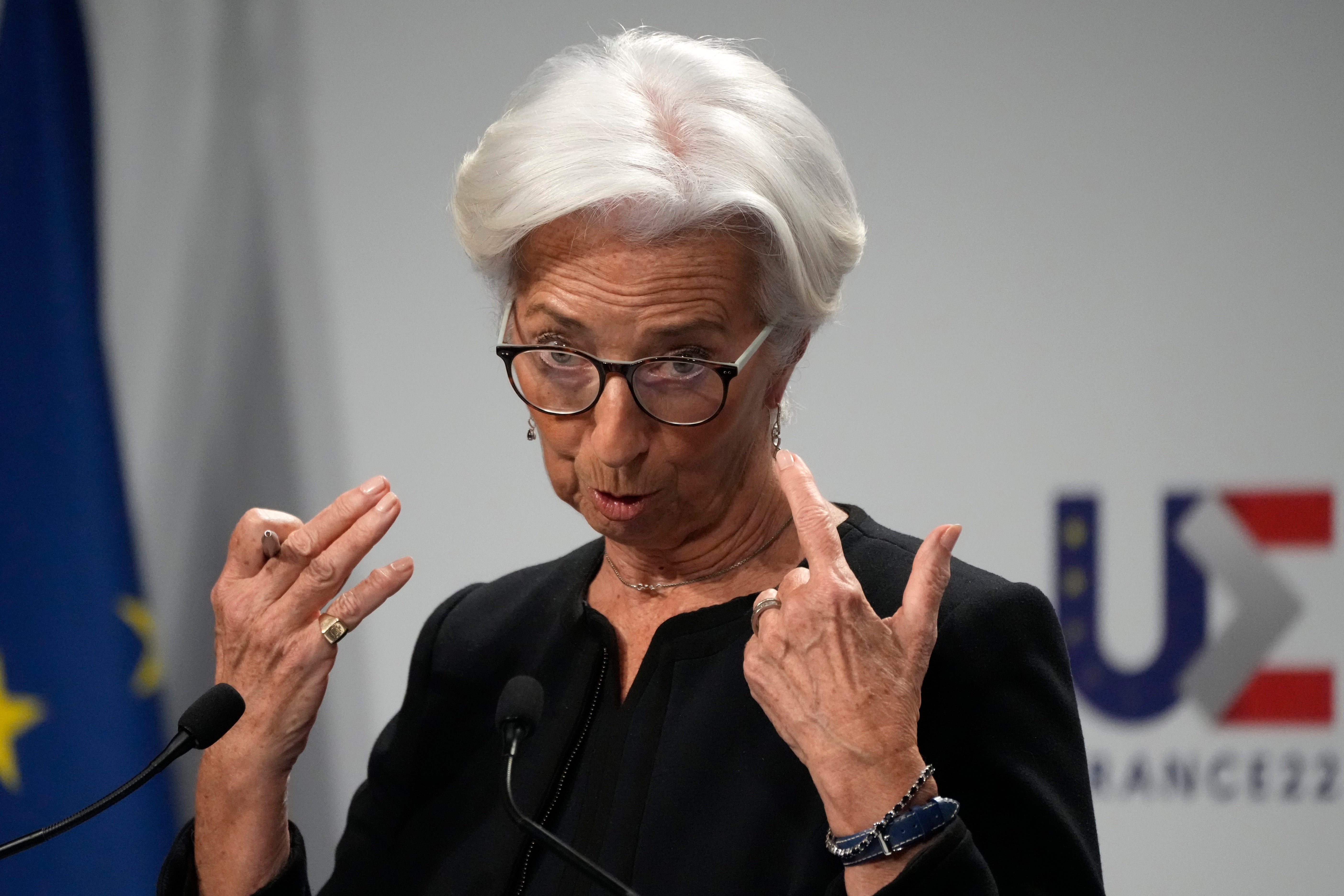Europe's central bank pulled two ways by war in Ukraine
The war in Ukraine is squeezing the European Central Bank between conflicting pressures, propelling energy prices and inflation higher while exposing Europe to a potential hit to economic growth

Your support helps us to tell the story
From reproductive rights to climate change to Big Tech, The Independent is on the ground when the story is developing. Whether it's investigating the financials of Elon Musk's pro-Trump PAC or producing our latest documentary, 'The A Word', which shines a light on the American women fighting for reproductive rights, we know how important it is to parse out the facts from the messaging.
At such a critical moment in US history, we need reporters on the ground. Your donation allows us to keep sending journalists to speak to both sides of the story.
The Independent is trusted by Americans across the entire political spectrum. And unlike many other quality news outlets, we choose not to lock Americans out of our reporting and analysis with paywalls. We believe quality journalism should be available to everyone, paid for by those who can afford it.
Your support makes all the difference.Russia's war in Ukraine is squeezing the European Central Bank between conflicting pressures, propelling energy prices and inflation ever higher while exposing Europe to a potential hit to economic growth.
And that means the bank's governing council and President Christine Lagarde are likely to hold off on major changes Thursday and stress flexibility on whether they can stick with their roadmap for ending economic stimulus programs.
“In this highly uncertain environment, the ECB is bound to keep maximum flexibility and optionality in all directions, avoiding any firm decisions,” said Frederik Ducrozet, strategist at Pictet Wealth Management.
The bank's policy meeting take place as Europe faces higher and more persistent inflation than expected, which could call for less stimulus efforts and earlier interest rate increases. The war is worsening inflation by driving oil and gas prices higher.
On the other hand, economic growth is at risk in the 19 countries that use the euro because they are more exposed to the war as neighbors in Europe and are more dependent on Russian oil and gas than the U.S. and China. That also would call for putting off plans for exiting stimulus programs.
Analysts are using the term “stagflation” to describe the combination of higher inflation and weaker growth. It's a tough problem for any central bank because it pulls policymakers in two directions: taking steps to combat higher consumer prices could wind up hurting growth, and support for growth could worsen inflation.
On top of that, the bank's meeting Thursday comes before officials know the outcome of a summit of European leaders, where a shared effort to support the economy through government spending could be discussed. That is a factor that could affect what the bank would need to do.
Before the invasion, analysts thought worsening inflation could push the bank to start raising interest rates by the end of this year and speed up its gradual exit from bond purchases to stimulate the economy. But because the war has added so much uncertainty and any rate rises were so many months away, the bank could stress that it has the flexibility to shift its stance as the war's fallout becomes clearer instead of altering its roadmap.
Eurozone economic output rose 0.3% in the fourth quarter from the quarter before, while annual inflation is running at 5.8%, the highest since statistics started in 1997.
Fears of oil and gas cutoffs have sent already high energy prices even higher, leading to predictions that inflation can only go higher in the short term. The question is how long it will last and whether inflation will later fall toward the bank's target of 2%.